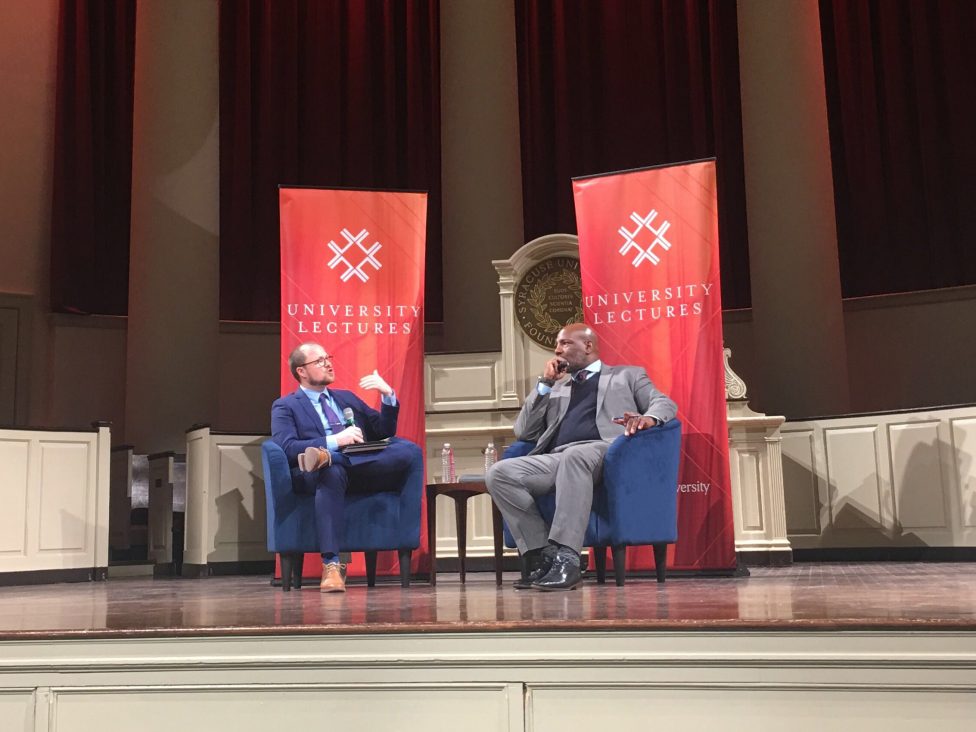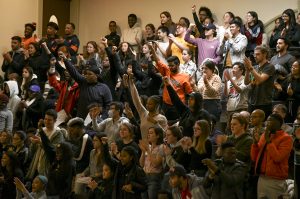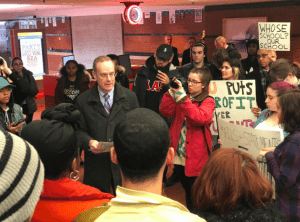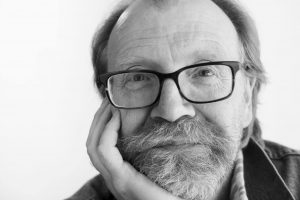New Yorker staff writer Jelani Cobb talks racism and campus activism
New Yorker staff writer Jelani Cobb talks racism, activism on campus

When writer Jelani Cobb was an English and history double major at Howard University, he was often asked whether he wanted to be a journalist or a historian. Not knowing he would one day be able to combine the two, his answer was simply, “yes.” Fast forward to the present day – where Cobb utilizes both his areas of study to write about race, politics, and history as an author and staff writer for The New Yorker, a position he’s held since 2015.
“The history contextualizes the journalism I’m interested in, and the journalism shows the ultimate implication in the history,” he shared with an audience at Hendricks Chapel on Tuesday night, where he spoke as part of Syracuse’s University Lectures series.
Moderated by history associate professor Jeffery Gonda, the discussion with Cobb covered the history of race in America, and how both journalists and historians play a significant role in the way that is presented to the general public. He described historians as those who investigate to figure out how things came together, and journalists take that information to create a story that people can understand and appreciate. But he says that in the past, the narrative about the beginning of the country has been distorted.
“We’re told that America started off pretty well and has only gotten better,” Cobb said. “If you seriously engage with the history of this country, you can’t really tolerate that kind of myth anymore.”
Cobb expressed that this was largely a result of predominantly white news outlets who put no effort toward representation in their workplace, leading to journalists writing about perspectives that were not their own. But, he said that it is more difficult nowadays to get away with a lack of representation without hearing backlash, whether that be in real life or on social media. Cobb and many other writers of color (such as his Howard classmate and The Atlantic national correspondent Ta-Nehisi Coates) are working to revise those inaccuracies, he said.
Relating race to a more collegiate level, Cobb also discussed the importance of activism and civic engagement on campus, especially in light of the protests that took place last semester in response to the multiple racist incidents.
“You read about social movements — especially in the 20th century — and they all start in the same sort of place,” Cobb said. “They’re always a response to some sort of ignorance, where people think, ‘This is intolerant to the point which I can no longer go about my life as it normally was.’
“A lot of things have pushed us to reach those points.”
He emphasized that when this type of occurrence happens on a college campus, it’s even more important for students to organize. Universities have traditionally been too complicit in acts of discrimination and racism, he said.
Broadcast and digital journalism senior Camila Grigera Naón said she was inspired by Cobb’s words and wanted to apply it to her own life.
“The most important thing that I took away from [his lecture] is to choose one problem in society, and just work toward tackling it in order to make a social change that can make the world today a little bit better than the world yesterday,” Naón said.
Cobb wants to encourage this kind of hopefulness, saying that he is often given hope by the optimism of young people.
“The struggles behind us are bigger than the struggles in front of us,” Cobb told the crowd. “Ultimately we’ll get to create a world that is a little bit better than the one that we’ve received.”








